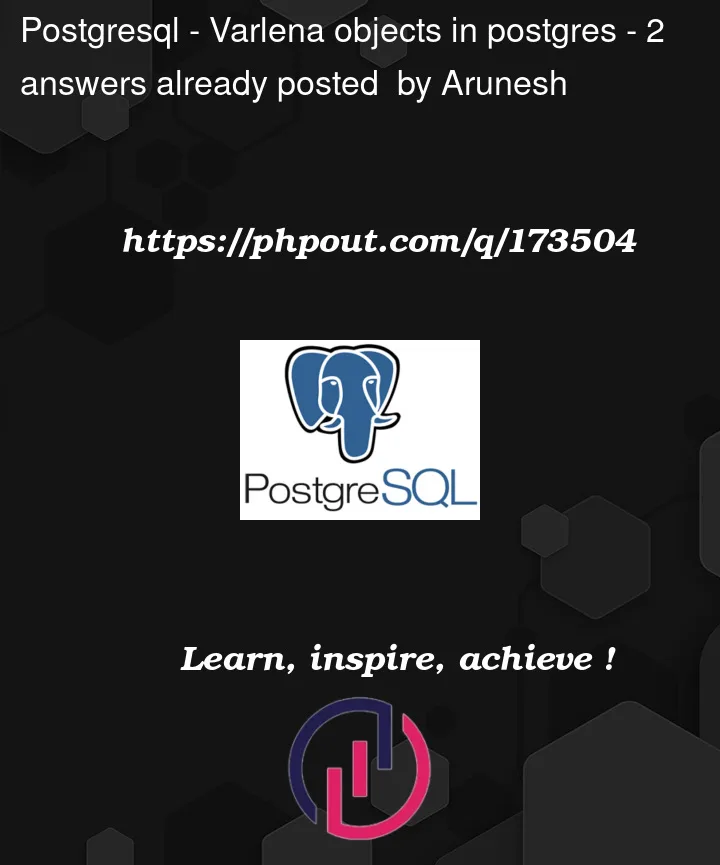How Varlena objects provide flexibility in handling data with variable lengths in postgres while minimizing storage overhead?
I read about the varlena objects in postgres but not able to understand the concept behind the varlena objects.
 Question posted in PostgreSQL
Question posted in PostgreSQL
How Varlena objects provide flexibility in handling data with variable lengths in postgres while minimizing storage overhead?
I read about the varlena objects in postgres but not able to understand the concept behind the varlena objects.
2
Answers
Varlena objects stand for variable length arrays in postgres and they are used to efficiently store variable length data.
For varlena objects, postgres stores a pointer along with some metadata in the header instead of actual data. So when a variable length value is stored like TEXT and VARCHAR, a varlena object is created to represent it.
This optimizes storage for example if you have a VARCHAR column and fixed-length storage is used, then for smaller values excess space would go unused. But with varlena objects, space is allocated to accommodate each value according to its length.
Varlena values in PostgreSQL can store data of any length, up to a maximum size of 1 GB. However, when a varlena value exceeds a certain size (2 KB), PostgreSQL employs a process called
toasting. This process involves compressing and storing the value in a separate table called the toast table.When you access a varlena value, PostgreSQL automatically performs
detoastingif the value is in the toasted format. Detoasting involves retrieving the compressed data from the toast table, decompressing it, and presenting the actual value to the user or application.